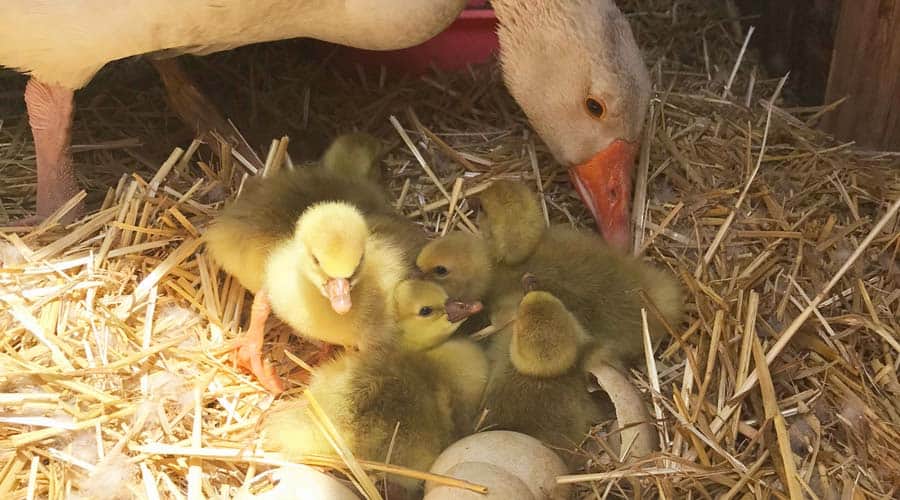As I stood by the goose nest, anticipation filled the air. I had the privilege of witnessing the extraordinary journey of goose eggs transforming into fluffy goslings. Curiosity ignited within me, and I embarked on a quest to unravel the secrets of this fascinating process.

How Long For Goose Eggs To Hatch
The incubation period of goose eggs holds a captivating allure. These large, oval-shaped eggs embark on a 28-35 day journey before welcoming their feathered offspring into the world. Throughout this period, the mother goose plays a pivotal role, tirelessly tending to her precious cargo, providing warmth and protection.
Environmental Factors
While the average incubation period for goose eggs typically falls within the 28-35 day range, environmental factors can influence the duration. Colder temperatures tend to prolong the incubation period, while warmer temperatures can accelerate the process. The optimal temperature for goose egg incubation hovers around 99°F (37°C), with humidity levels ranging between 50-60%.
Proper ventilation is also crucial for successful hatching. Fresh air prevents the accumulation of toxic gases within the nest, ensuring a healthy environment for the developing embryos. Adequate airflow promotes proper egg development and reduces the risk of embryo mortality.
Candling and Monitoring
Candling is a non-invasive technique used to monitor the progress of goose eggs during incubation. By shining a bright light through the egg, it becomes possible to observe the embryo’s development. Candling allows breeders to assess the viability of the egg, identify any potential issues, and make informed decisions regarding the continuation of incubation.
Regular monitoring of the eggs is crucial for timely intervention should any complications arise. This involves observing the eggs for any signs of cracking, discoloration, or foul odor. Quick identification of potential problems increases the chances of successful hatching and the well-being of the goslings.
Tips and Expert Advice
For optimal goose egg hatching success, it’s essential to heed the advice of experienced breeders and poultry enthusiasts. Here are some valuable tips to enhance your chances:
- Quality Breeding Stock: Selecting healthy and productive geese as breeding stock is paramount. This improves the probability of strong embryos and successful hatching.
- Nest Preparation: Providing a clean, comfortable, and well-drained nest is crucial for successful incubation. Ensure the nest is free from pests and predators.
- Egg Handling: Avoid washing goose eggs, as this can remove the protective bloom that safeguards them from bacteria. Handle eggs with utmost care to prevent cracking.
- Incubator Settings: If using an incubator, meticulously follow the manufacturer’s instructions for temperature, humidity, and ventilation settings.
FAQs
- Why do goose eggs sometimes fail to hatch?
Several factors can contribute to hatching failure, including poor egg quality, improper incubation conditions, embryo mortality, and disease.
- What should I do if I find an abandoned goose egg?
If you discover an abandoned goose egg, gently place it in a warm, humid environment and contact a poultry expert for guidance.
- How can I tell if a goose egg is fertile?
Fertile goose eggs typically exhibit a network of blood vessels when candled.
- What is the best way to care for newly hatched goslings?
Newly hatched goslings require warmth, food, and water. Provide a warm, draft-free environment, offer a starter feed specifically formulated for goslings, and ensure access to clean water.
Conclusion
The incubation period of goose eggs is a miraculous journey that culminates in the arrival of fluffy goslings. Understanding the intricacies of this process, the role of environmental factors, and the importance of proper monitoring enhances our ability to support successful hatching. Whether you’re a seasoned breeder or a curious observer, the wonder of goose egg incubation continues to captivate hearts.
Are you fascinated by the world of waterfowl and eager to learn more about goose egg incubation? Share your questions and experiences in the comments section below, and let’s continue to explore the secrets of nature together.
How Long For Goose Eggs To Hatch

Image: animalia-life.club










